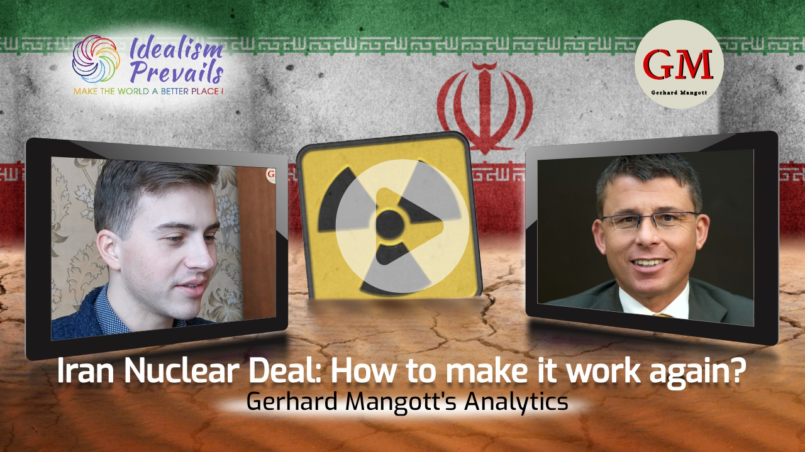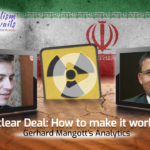Iran Nuclear Deal – How to make it work again?

The political scientist Univ-Prof. Dr. Gerhard Mangott explains the reasons why the Republican Party and the Trump Administration have always been against the JCPOA, which Trump eventually withdrew from in May 2018: the sunset clauses, that would run out after 8-10 years; the narrowness of the treaty, as it doesn’t include the ballistic program of Iran; and that the JCPOA didn‘t include Irans support of proxies in the Middle East region (Jemen, Syria etc).
After additional sanctions were imposed by the USA in May 2019, Iran decided to violate its obligations step by step until today.
The Biden Administration tries to renew the JCPOA and accepts, that the Trump strategy of maximum pressure has failed. The new agreement should be broader, stronger and longer. Iran though doesn’t want to expand its obligations. For further negotiations the USA insists that Iran has to make the first step: it has to get in compliance to its obligations under the JCPOA – then the United States will drop the sanctions. Iran on the other hand wants the sanctions being dropped first, as the USA violated the JCPOA with its exit. This game of chicken is not very helpful, says Mangott. There should be a parallel process of negotiation with some goodwill from the United States in reducing some of the sanctions.
The proposal of the Iranian Foreign Minister to synchronize the necessary steps from both sides seems reasonable, because it’s the only safe facing way for both sides to start renegotiating the JCPOA. Looking forward, the USA wants to include Israel and Saudi Arabia in the negotiations, which is obviously difficult to accept for Iran.
According to the United States foreign minister Iran is about four months away from producing highly enriched uranium that can then be used for an atomic weapon. Still it seems that Iran is lacking the technical capability to produce such a weapon; it would take them another two years to fulfill that project. Learning from other countries like Iraq, Libya or North Korea Iran expects, that threats against it will only stop if it acquires an atomic bomb. But Iran stays open for negotiations about its atomic program, if the sanctions are lifted, because they are doing a lot of damage to the Iranian economy and its people.
The USA under Joe Biden will stick to its alliances with Israel and Saudi Arabia (who both oppose the JCPOA), but it will not give in to radical demands from its allies. Meanwhile, Oman and Quatar are trying to mediate between both sides.
The interview was conducted by Mag. Matthias Penkin.
The original video was posted here.
We would like to thank Prof. Gerhard Mangott and Mag. Matthias Penkin for the opportunity to broadcast this interview.
If you want to know more about the work of Prof. Gerhard Mangott please check out the following accounts:
Youtube: https://youtube.com/c/Gerhard_mangott Analytics
Telegram: https://t.me/gerhard_mangott
Instagram: @gerhard_mangott
Credits
| Image | Title | Author | License |
|---|---|---|---|
 |
Iran Nuclear Deal – How to make it work again | Wolfgang Müller | CC BY SA 4.0 |
